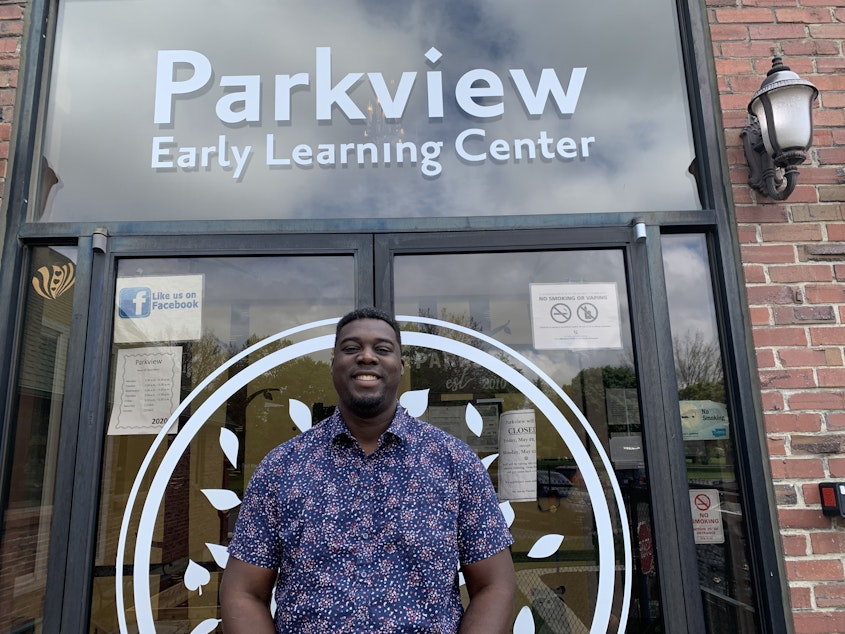'Barely Holding It Together': Stresses Of An Early Child Care Center That Stayed Open

When Luc Jasmin III took over Parkview Early Learning Center six years ago, he wanted to create a safe space where young children could not only be cared for but also get an educational foundation to prepare them for a lifetime of learning.
During normal times, the center in Spokane, Wash., serves about 100 children who range in age from 4 weeks old to 13 years. The center didn't close down during the coronavirus pandemic, except for a couple of days to retrain staff on social distancing and cleaning guidelines.
However, since mid-March, it has been operating at one-third capacity under the guidelines. Because the center serves families in need, it has been a tough decision. Jasmin says he gets calls every week from parents asking about enrollment, but he has had to turn them away.
It's tough, he says, "because so many essential workers rely on us to be consistent and reliable. And we're really unable to offer that right now."
A majority of the children at his center come from low-income families — about 90% of them get some kind of subsidy and some are homeless.
Sponsored
At a time when routine and structure have changed drastically, Jasmin says some children are having more outbursts and challenging behaviors than usual. The stresses under the coronavirus have been tough — not just on the kids but also on his staff, many of whom experienced trauma as children.
"They can relate to the kids we have here, but the increased behaviors are triggering the traumas of my own employees. There are kids swearing at them and punching them in the face," Jasmin says. "They're trying to be bigger, kinder, stronger, wiser for these kids, but inside they're barely holding it together."
Most of the kids who have continued to come in are children of essential workers — those in front-line emergency services and health care, grocery and food delivery. Jasmin especially understands the need for child care for families with working parents and their role in reopening the economy.
"I'm really worried," he says. "Unless we as a nation ... decide to fund early learning, I don't know how we're going to get back to normal."
Read more stories in Faces Of The Coronavirus Recession. [Copyright 2020 NPR]


